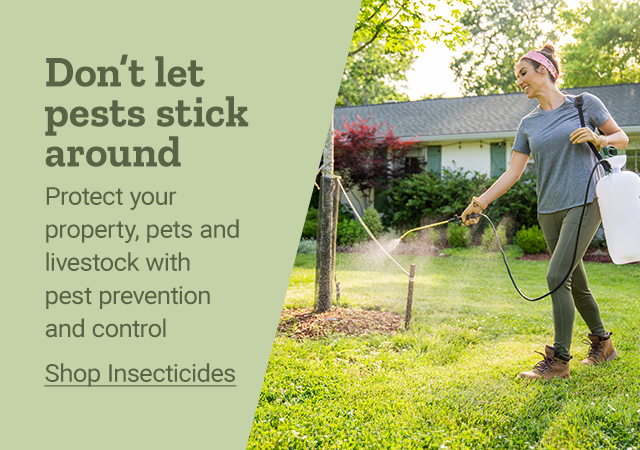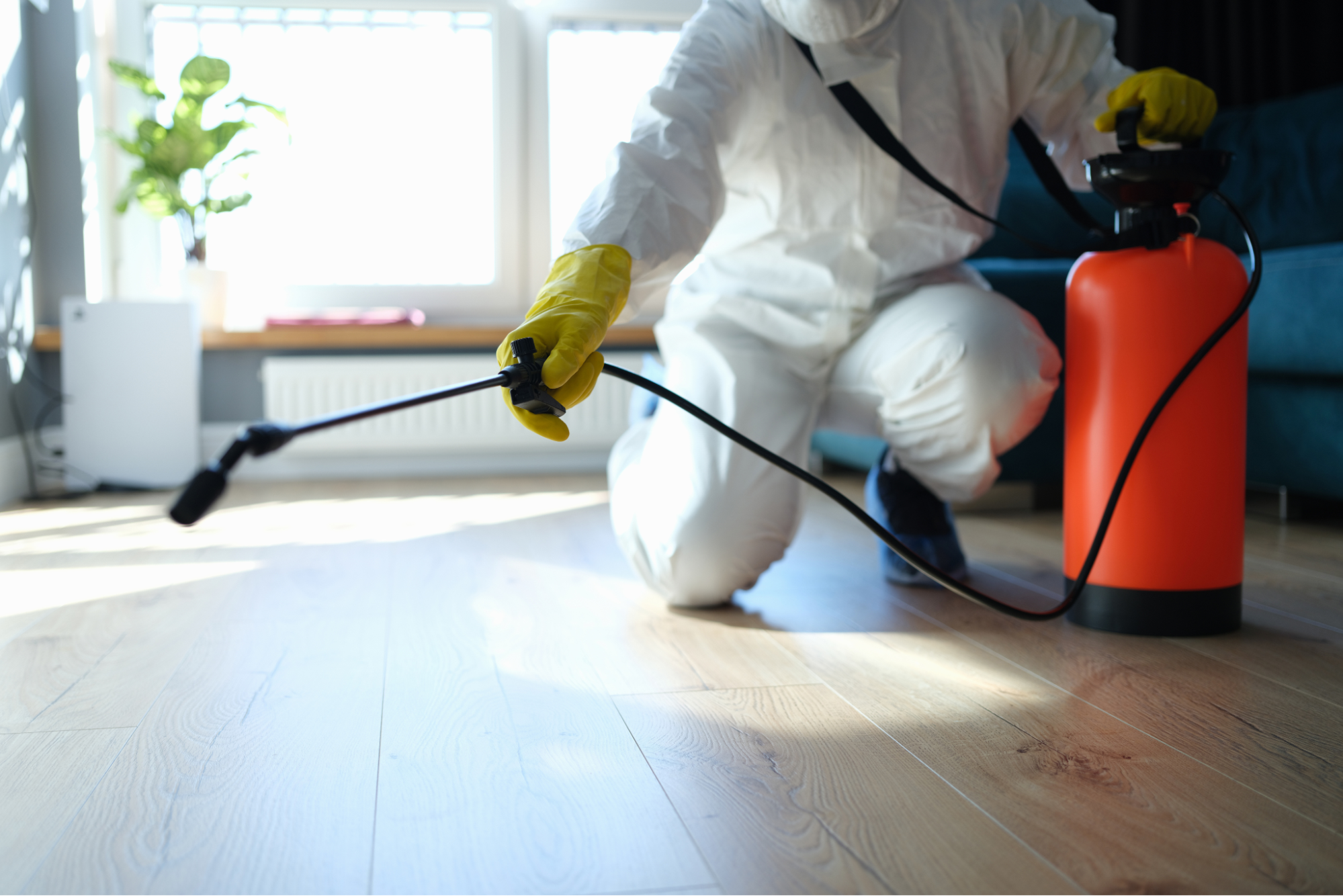Discovering Various Approaches and Strategies for Comprehensive Parasite Control in Residential Spaces
The landscape of pest control in residential spaces has actually advanced significantly, necessitating a thorough understanding of numerous methodologies that can be used for reliable monitoring. Standard chemical treatments, while effective, are increasingly being enhanced by green options and Integrated Parasite Monitoring (IPM) methods. House owners should consider preventative measures, such as normal tracking and accurate pest recognition, to preserve a healthy setting. Nonetheless, the genuine challenge hinges on striking a balance between efficacy and safety and security-- an exploration that discloses the subtleties of each method and its implications for lasting living.
Recognizing Pest Control Fundamentals
Reliable pest control is crucial for maintaining a healthy and balanced and secure living setting. Understanding the fundamentals of parasite control involves acknowledging the kinds of parasites that typically get into household spaces, the prospective dangers they posture, and the importance of safety nets. Usual household pests include rodents, bugs, and various other undesirable animals that can endanger hygiene, damage residential property, and cause health issues.
A vital very first step in pest control is determining the specific bugs existing. This can include evaluating locations such as cellars, kitchens, and attics, where insects are likely to thrive. Once identified, it is crucial to understand their habits, reproducing cycles, and liked atmospheres, which can notify suitable control strategies.
Safety nets are basic to efficient insect administration. These include sealing access points, maintaining sanitation, and minimizing clutter to eliminate concealing areas. Additionally, correct food storage space and waste administration can substantially decrease the attraction of a home for bugs.

Typical Chemical Therapies
Among the different bug control approaches, standard chemical treatments have long been used to resolve invasions in residential spaces. These treatments normally include the application of chemical pesticides developed to get rid of bugs such as pests, rats, and various other unwanted microorganisms. The efficiency of these chemicals can vary, depending on the kind of parasite, the formulation of the chemical, and the approach of application.
Usual classes of typical chemical treatments consist of pesticides, herbicides, rodenticides, and fungicides, each tailored to battle details pests. Insecticides, for instance, may target ants, roaches, or termites, while rodenticides are specifically formulated to control rodent populaces. These chemicals are often offered in numerous kinds, including lures, sprays, and granules, allowing homeowners adaptability in application.
Regardless of their effectiveness, standard chemical treatments elevate concerns regarding prospective poisoning to humans, family pets, and helpful microorganisms in the atmosphere. Therefore, it is critical for property owners to carefully comply with application standards and safety and security preventative measures to lessen risks. Integrated Insect Administration (IPM) approaches can match these therapies, making sure a much more holistic approach to pest control while making the most of efficacy and safety and security in property settings.
Eco-Friendly Bug Control Options
Green parasite control choices are acquiring popularity as homeowners look for much safer and much more sustainable options to standard chemical treatments. These approaches focus on the health of both homeowners and the atmosphere, reducing the influence of insect control techniques.
One commonly adopted environment-friendly method is the usage of natural repellents acquired from crucial oils, such as pepper mint and citronella. These oils not only hinder parasites but also supply positive aromas for interior spaces. Moreover, diatomaceous planet, a powder made from fossilized algae, acts as a natural pesticide by damaging the exoskeletons of bugs upon call, causing dehydration.
An additional effective technique entails promoting biodiversity in backyards and yards. Presenting useful insects, such as ladybugs and lacewings, can normally manage pest populations (rat removal chicago Illinois). Additionally, employing traps made from naturally degradable products can aid capture and get rid of pests without causing injury to the environment
Normal maintenance, such as sealing entry points and appropriate hygiene, additional boosts the efficiency of eco-friendly pest control. House owners can take aggressive steps to avoid invasions, making certain a much more lasting living atmosphere while properly handling pest-related problems.
Integrated Pest Monitoring Methods
Applying incorporated insect administration (IPM) techniques uses a thorough method to pest control that emphasizes avoidance and long-lasting solutions. IPM integrates multiple tactics, focusing on understanding bug actions, life cycles, and ecological dynamics to minimize bug populaces efficiently. This diverse strategy focuses on non-chemical methods, such as biological control, environment manipulation, and cultural methods, to decrease reliance on chemicals.
A foundational aspect of IPM is monitoring and determining parasites properly. This includes normal examinations and the facility of action limits to establish when intervention is necessary. By recognizing the particular parasites influencing residential settings, targeted treatments can be used, decreasing the probability of unneeded chemical applications.
By promoting a setting that discourages bug invasions-- such as sealing entrance points and taking care of moisture-- residents can substantially alleviate the danger of pest problems. Through these techniques, IPM not just addresses current parasite issues but likewise promotes sustainable techniques that promote long-term parasite monitoring success.
Preventative Procedures for Residence
To ward off possible bug invasions, home owners should embrace an aggressive strategy that highlights preventative procedures. This begins with maintaining a orderly and clean living space, as mess and food debris draw this article in pests. Chicago pest control for restaurants. On a regular basis vacuuming, sweeping, and wiping down surface areas can considerably minimize the danger of infestations
In addition, securing entrance points is essential. Home owners need to evaluate windows, doors, and structure fractures for gaps that can enable bugs access to the home. Utilizing caulk and weather removing can efficiently block these entryways.
Correct food storage is one more vital action. Keeping food in closed containers and without delay tidying up crumbs or spills helps prevent rodents and bugs.
Furthermore, managing outside environments can stop insects from intruding on household rooms. Property owners ought to make sure that water drainage systems are functioning well, and landscaping is maintained tidy. Trimming trees and bushes far from your home and getting rid of standing water can even more decrease insect habitats.

Conclusion
In verdict, efficient parasite control in domestic rooms necessitates a diverse strategy that combines standard chemical therapies with environmentally friendly techniques and Integrated Pest Administration approaches. By focusing on preventative measures, such as maintaining tidiness and securing entry points, house owners can dramatically decrease insect events.
Recognizing the basics of insect control includes identifying the kinds of insects that frequently attack residential spaces, the potential dangers they present, and the value of preventative actions.A crucial very first home step in bug control is determining the certain parasites existing. Integrated Pest Management (IPM) strategies can complement these treatments, ensuring a more holistic approach to pest control while taking full advantage of effectiveness and security in domestic settings.
Executing integrated pest management (IPM) strategies offers a site here thorough strategy to pest control that stresses avoidance and long-lasting services.In conclusion, reliable bug control in property areas necessitates a complex technique that integrates conventional chemical treatments with eco-friendly techniques and Integrated Bug Management methods.